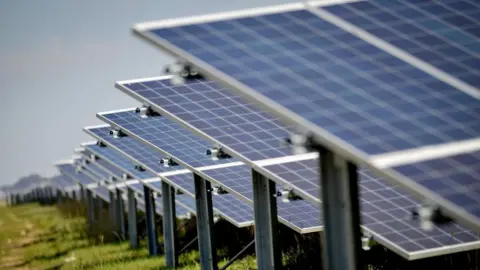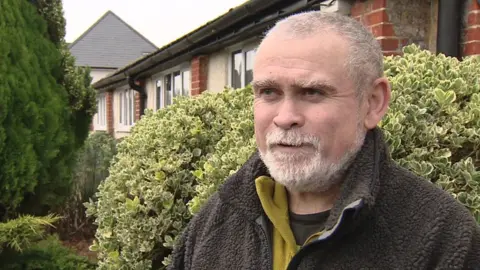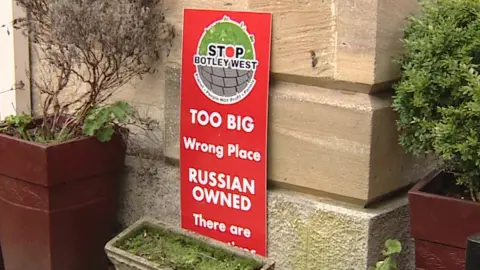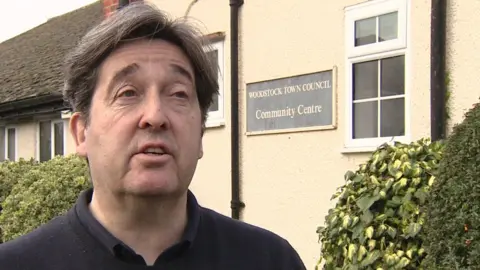Botley West Solar Farm: Opponents criticise size of scheme
 PA Media
PA MediaA large solar farm proposed for the Oxfordshire countryside would be "entirely inappropriate", critics have said.
The 1,000 hectare (2,471-acre) Botley West Solar Farm is planned for three sites owned by Blenheim Palace.
The Stop Botley West campaign group said it feared the facility would be "imposed" on the community.
Developers Photovolt Development Partners (PVDP) said people would "not notice" the solar farm.
As part of a consultation into Botley West, which would cover sites near Botley, Kidlington and Woodstock, public meetings offering the chance to review proposals are being held until 8 February.

Alex Rogers, chair of Stop Botley West and a parish councillor for Cassington, said it would have an "enormous impact" on west Oxfordshire.
"The scheme is of a scale that's entirely inappropriate for this region.
"We are talking about a scheme that is the size of Heathrow Airport in a locality which is rural.
"People have left these meetings in tears - there is crushing feeling of helplessness that this power station will be imposed on them, with very little ability or capability to capability as a community to respond."

Blenheim Palace, the main landowner of the sites, said: "The merits of this proposal remain clear, and the case for us all to increase the number of sustainable energy initiatives is only getting stronger."
Project director Mark Owen-Lloyd dismissed claims made on campaigners' publicity material that "Russian money" was being invested in the scheme and that it would be "Russian owned, in breach of international sanctions following the invasion of Ukraine.
He said the company was a "reputable developer of solar farms" and the planning application, to be submitted in June, would detail all its sources of investment.
 AFP
AFP"The posters are an attempt to divert from the main argument - which is 'do we need to build renewables in Oxfordshire?', he said."
He added people should "focus on the merits" of the project which could provide enough renewable electricity for the county of Oxfordshire.
"We are doing everything to make sure in almost all locations the panels are hidden within the fields and behind hedges - by 2027 those hedges will have grown sufficiently. We can't hide them completely, but once it is built, you will not notice it is there.
"The effect will be dramatic in terms of decarbonisation," he added.

Follow BBC South on Facebook, X, or Instagram. Send your story ideas to [email protected].
